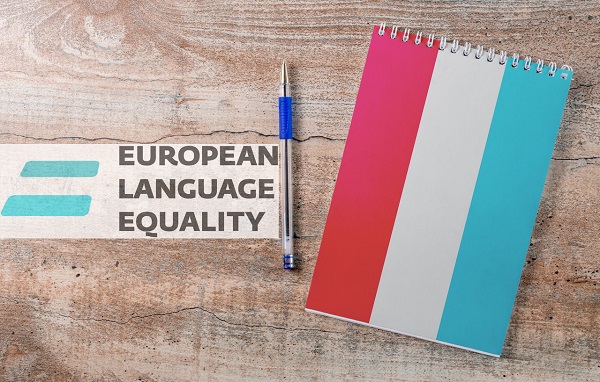 Credit: LIST
Credit: LIST
The Luxembourg Institute of Science and Technology (LIST) has announced its new role as representative for the Luxembourgish language within the European Language Equality (ELE) project.
Funded by the European Union (EU), the ELE project is a consortium of 52 partners from across the bloc representing the languages of each country. ELE aims to develop an agenda and a roadmap for achieving full digital language equality in Europe by 2030.
Fighting the cause for Luxembourg and the Luxembourgish language is LIST as the country's only representative within the consortium.
Heading up the project at LIST is Dr Dimitra Anastasiou, a data science and analytics researcher in the IT for Innovations Services department. Explaining her role in ELE, she said: "What I have done is to collect metadata about anything that has to do with Luxembourgish, meaning data resources, text documents either bilingual or monolingual, dictionaries and glossaries etc, as well as any tools and applications that promote Luxembourgish or are written in Luxembourgish".
In January 2022, Dr Anastasiou submitted a report regarding the metadata collected that included the landscape of language technology for Luxembourgish, including available tools and resources as well as projects, initiatives and stakeholders. This report was also sent to the University of Luxembourg where the Luxembourgish language can be studied, as well as to the government’s Luxembourgish Language Commissioner Marc Barthelemy and the Zenter fir d'Lëtzebuerger Sprooch (ZLS), as the report makes frequent reference to Luxembourgish spelling and the ZLS is the centre responsible for this.
However, promoting Luxembourgish is not as easy as promoting the country’s other official languages, French and German, as Dr Anastasiou explained: "It is difficult because Luxembourgish is an under-resourced language so there’s a lot of data lacking. I would say the reason for that is because Luxembourg is so multilingual and multinational with [the] percentage of foreigners reaching almost 50%. Everyone speaks French, German or English, so people communicate in another language apart from Luxembourgish because they don’t need to".
"The second reason it is difficult is because it is not currently an official EU language, which means that official EU documents are not translated into Luxembourgish", she continued.
Should Luxembourgish eventually reach official EU status, however, it will have a significant impact on language technology as a large amount of data will be created. "All the EU websites will be in Luxembourgish and through data crawling a lot of data will be processed", said Dr Anastasiou. "However, this entails a high investment both in terms of cost and time to translate all EU official documents into Luxembourgish, which should be taken into account by many stakeholders".
The ELE project is a direct response to the resolution “Language equality in the digital age”, which was passed by the European Parliament in a landslide vote in September 2018. It takes into account more than 70 languages.
The involvement of Luxembourgish in this project therefore raises the question of whether it could be a step towards Luxembourgish becoming an official EU language. The answer, according to Dr Anastasiou, is yes.
"It is a long-term vision of institutions, organisations and the government to promote Luxembourgish and have it in a digital well-represented form and we have seen the recent arrival of language technology projects, like the Chatbot. It shows that LIST has received funding in the past few years regarding language technology, so I am very optimistic about the future as one project brings another", she said, before adding: "I would like to continue working on natural language processing as I see it as a very promising domain in many disciplines like bio and health informatics, banking, entertainment and communication".
The ELE project at LIST, and indeed across Europe, is set to continue until June 2023, with a possible follow-up thereafter.
LIST is also a national competence centre in a sister project of ELE, the European Language Grid (ELG), whose aim is to create a powerful and scalable language technology platform using a grid architecture with thousands of datasets and hundreds of language technology services.








